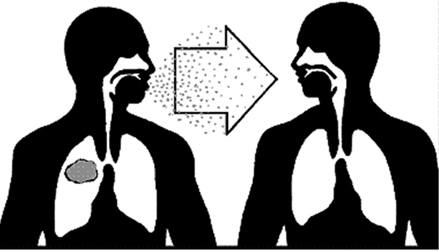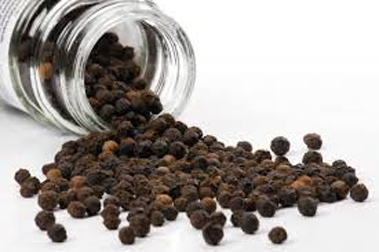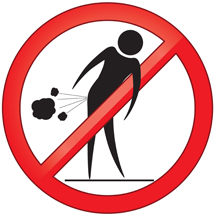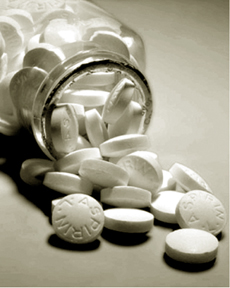|
Health
Why is TB still a major health risk?
By Carol Aloysius
Over 150 years ago, a mysterious unidentified killer disease stalked
the world leaving a trail of deaths in its wake.
Undiagnosed and not properly understood even by the medical
fraternity at the time, Tuberculosis ( TB) struck at the heart of the
world's most productive persons resulting in the premature deaths of
nearly 1/12 million persons each year, the death toll in Europe and the
Americas rising to one out of seven people.
It was left to one man with a vision to change that grim tide.
In 1882, Dr Robert Koch announced in Berlin he had finally discovered
the cause of tuberculosis; the elusive TB bacillus, paving the path
towards diagnosing and curing a disease that for so long had baffled the
medical world.
With the medical fraternity collectively working to this end, the
death rates slowly but encouragingly dropped. Between 1990-2013, the
death rates dropped to a low of 45% . From 2000 – 20013, thirty seven
million lives were saved through speedy TB diagnosis and superior
treatment.
So why, even after these positive gains, is TB still a major global
health risk? Look at the statistics: As recent as 2013, TB was killing
1.5 million people worldwide.
In 2013 over half a million children from (0-14 years) fell ill with
TB, and 80,000 HIV negative children died from the disease. TB has also
been cited as the top five causes of death for women aged 15-44 struck
down in their most productive years of life, according to WHO reports.
In addition TB is also a leading killer of HIV positive people causing
one fourth of all HIV deaths due to multi drug resistance. In 2013, an
estimated 480,000 developed Multi Drug Resistant TB ( MDR-TB) worldwide.
 Even Sri Lanka has not escaped from the clutches of this vicious
trend despite its negligible incidence of HIV/AIDS. Health Ministry
sources recently cited two cases of ‘'TB-HIV co-infection'. Even Sri Lanka has not escaped from the clutches of this vicious
trend despite its negligible incidence of HIV/AIDS. Health Ministry
sources recently cited two cases of ‘'TB-HIV co-infection'.
Transmission
How does this deadly disease spread? What causes it?
Director National Program for TB Control and Chest Disease (NPTCCD)
Dr Gamini Senevirathne explains:
“TB is caused by a bacteria ( myocobacterium tuberculosis) that often
affects the lungs . It is spread from person to person through the air.
When people with lung TB cough, sneeze or spit, they propel the TB
germs into the air.
A person needs to inhale only a few of these germs to become
infected.” While not everyone exposed to the germ gets TB (90% will
never get it as they are non infectious) he warns some persons who may
have the germ in their bodies without their knowledge, could develop TB
if their immunity was lowered.
Most secondary reactivated TB cases are those that remain dormant in
the body and become re-activated once immunity is lowered”.
Lankan situation
While Sri Lanka has moved ahead of most of its neighbours including
India, towards achieving the Global TB Elimination goal (the current TB
situation as of 2014, was 46.6 patients per 100,000 population, subject
to district variations.), health officials however warn these figures
should not lull us into a false sense of complacency.
According to them as many as 4,000 patients with TB are currently
walking around the streets infecting others they come into close
contact.
“These are mostly undiagnosed cases, who have not registered
themselves at any of our district clinics, for various reasons. Some are
drug addicts, others opt for ayurvedic or spiritual healing, while still
others discontinue their treatment when they are jailed for some
offense.
Those living in very remote areas are also difficult to locate,”
Deputy Director of the NCCTPD Dr Sudath Samaraweera explains.
Yet, from the figures he gives us the highest incidence of TB is not
so much in remote areas but in the heart of the metropolis teeming with
clinics and specialists.
“One out of ten patients found positive are from overcrowded urban
areas,” he says.
“This is because of poor environmental conditions, living in close
proximity to each other, and the fact that many don't use our free
services, preferring to go to private clinics first and then come to us.
A cough is not always an indicator of TB. But if they come to us
after taking medications elsewhere it is difficult to make an accurate
diagnosis as the symptoms are suppressed.” Finding time to attend
clinics while working is another reason.
Stigma
Health officials are worried that the stigma attached to TB,
ignorance of the disease and its consequences on the rest of society,
could increase the number of undiagnosed cases, and hasten the
re-emergence of an TB epidemic in the future.
|
TB in Lanka
46.6 patients per 100,000 diagnosed patients
4,000 undiagnosed case walking around the streets infecting others
they come into close contact
One out of 10 patients found positive are from overcrowded urban
areas A cough is not always an indicator of TB Though 13,900 TB patients
are expected at district clinics only 10,000 have registered themselves,
leaving 4,000 undetected cases. |
“Annually more than 13,900 TB patients should show up at our district
clinics. But only ten thousand have registered themselves at these
clinics, leaving us with 4,000 undetected cases of TB (the numbers could
be higher) who need to be reached if we are to achieve our goal of
eliminating TB from this country,” Dr Senevirathne said, adding “If they
don't come to us, we need to go after them.”
Unless this is done very soon, in the next five years, there could be
a TB epidemic on our hands, his Deputy Dr Samaraweera warns. “Over
50,000 patients will be treated for TB. The majority of them will be in
the productive age, and over 2/3 of patients above 15 years will be
males,” he predicts.
Some of the biggest challenges they face he says is TB control among
IDP re-settled and returning migrant populations. “Around 43% migrant
populations return after visiting relatives in India where TB is
rampant.
Controlling TB among the estate sector, is also a problem.”
Lack of human resources, including chest physicians, lab technicians,
nurses and labourers, PHI's in most hospitals are also challenges that
need to be overcome, if solutions are to be found to improving TB case
findings, minimising treatment defaulters, and having better control of
urban TB and TB among IDP re-settled and returning migrant populations,
he says.
Health Ministry inputs Director General Health Services Dr P. G.
Mahipala however argues that concrete initiatives are already in place
with 26 chest clinics set up islandwide and 30 specialist doctors
trained in the UK and Australia now available to pass on their newly
acquired knowledge to others in the field.
“Our target is to reduce the number of TB patients to one per one
million by 2050. We have the facilities, and know how to do this,” he
says.
Reiterating that TB is both preventable and hundred percent curable
with early diagnosis and treatment, he pleads for media support in
taking their message of ‘Reach, Treat, Cure’ to the public.
“If every newspaper, radio channel and TV Channel, passes on this
message even once a day, Sri Lanka could become a TB free country in the
not too distant future,” he says with optimism.
Break that wind habit
...with black pepper :
 Did you know that a powerful addition to your healthy weight loss
plan is very likely already in your kitchen? No, we’re not talking about
coconut oil - although that one is amazing too. Draw your attention to
your pepper mill. That’s right, it’s black pepper, the most potent of
all peppercorns. Did you know that a powerful addition to your healthy weight loss
plan is very likely already in your kitchen? No, we’re not talking about
coconut oil - although that one is amazing too. Draw your attention to
your pepper mill. That’s right, it’s black pepper, the most potent of
all peppercorns.
Not only does black pepper play a starring role in seasoning our
meals today, it has been prized throughout history and was extensively
used to treat many ailments, including those rooted in inflammation, as
well as digestive disturbances. It can also be instrumental to healthy
weight loss.
So what is the connection between black pepper, soothing digestion
and promoting weight loss? As it turns out, the benefits are manifold. A
2001 study published in the journal Planta Medica found that piperine, a
compound found in black pepper, could help to soothe diarrhoea symptoms.
It has also been found to stimulate the stomach’s secretion of
hydrochloric acid, which is necessary for proper digestion. It is likely
due to black pepper’s ability to increase hydrochloric acid secretion
that makes it known for its ability to quell gas symptoms. This ability
also promotes a healthy gut environment, because when digestion is
running smoothly, toxins are more easily eliminated from the gut. As far
as weight loss, a 2012 study published in the Journal of Agricultural
and Food Chemistry found that piperine has the ability to block fat
cells from forming, and to promote the breakdown of existing fat cells.
On their results, the study authors wrote:
“Overall, these results suggest that piperine, a major component of
black pepper, attenuates fat cell differentiation… thus leading to
potential treatment for obesity-related diseases.”
 According to the researchers, piperine may also have other effects on
the metabolism that promote fat loss/lessened accumulation of fat,
although more research needs to be done on this. Additionally, black
pepper is laden with antioxidants, which along with supporting the
overall health of the entire body play an important role in healthy
digestion and gut balance. According to the researchers, piperine may also have other effects on
the metabolism that promote fat loss/lessened accumulation of fat,
although more research needs to be done on this. Additionally, black
pepper is laden with antioxidants, which along with supporting the
overall health of the entire body play an important role in healthy
digestion and gut balance.
On top of it’s digestive and weight loss potential, black pepper is
highly nutritious - it contains vitamin K, and the minerals calcium,
copper, chromium, iron and manganese, along with fibre. Black pepper is
also known for its decongestant abilities, and research from the
University of Michigan Cancer Centre has linked it with aiding in breast
cancer prevention - especially when combined with turmeric.
So, whether you’re trying to amplify your fat loss, want to kickstart
your digestive health, or just wish to provide your body with some great
minerals and antioxidants - all with great flavour - never underestimate
the power of black pepper.
Mechanism to stop ageing !
As medicine has improved, increasing our ability to treat disease, so
our longevity. The deterioration of the body with age, though, is a
whole other matter.
But apparently, all that might be needed is some “house-keeping” of
the brain, according to research just published in an early edition of
the journal PNAS by a Portuguese team from the Centre for Neuroscience
and Cell Biology (CNC) of the University of Coimbra.
 The researchers might have also solved a 70-year old mystery: how can
calorie restriction (a diet with low calories without malnutrition)
delay ageing and increase longevity in animals from dogs to mice. The researchers might have also solved a 70-year old mystery: how can
calorie restriction (a diet with low calories without malnutrition)
delay ageing and increase longevity in animals from dogs to mice.
In their new study, Claudia Cavadas and her group have discovered
that the key to this diet appears to be its ability to increase
autophagy - the mechanism that recycles unwanted molecules in the cells,
avoiding their “clogging and malfunction - in the hypothalamus (which
has just been identified as the “control centre” for ageing). They also
have identified the molecule that controls the process - called
Neuropeptide Y (NPY) - raising the possibility that NPY could be used to
develop ways to control ageing (instead of just treat its consequences,
like we now do).
The discovery can prove especially important to stop the emergence of
age-related neurodegenerative diseases - such as Alzheimer's and
Parkinson's - a huge step forwards considering that so far science has
been incapable of treating, stopping or even fully understanding them.
And in a rapidly ageing world a better control of this kind of
problems can prove crucial for everyone's survival.
In fact, according to the UN, in less than a decade 1 billion people
will be older than 60. In Japan, already more than 30% of the population
is older than 60 years old, and in Europe 16% of the population is over
65. So it is clear that our increasingly ageing population needs to be
kept as healthy and active as possible, or it will be financially and
socially impossible for the world to cope.
It is no surprise then, that research to understand and control the
deteriorating effects of ageing is now a priority.
One thing that has been clear for a while now is that autophagy (or
better, a reduction of it) is at the centre of the ageing process - low
levels of autophagy (so cells with impaired “house-keeping”) are linked
to ageing and age-related neurodegenerative disorders, such as
Alzheimer's, Parkinson's and Huntington's diseases. This is easily
explained as autophagy clears the cells “debris” keeping them in good
working order.
That the process is so important in the brain is no surprise either,
since neurons are the cells less able to replenish themselves once one
dies/malfunctions.
But about a year ago there was a remarkable discovery that changed
the field: hypothalamus, which is a brain area that regulates energy and
metabolism, was identified as “the” control centre for the whole-body
ageing.
To Cavadas and her group, which have worked on ageing and
neurosciences for a long time, this was particularly exciting. Not only
they knew that the only proved method to delay ageing and increase
longevity - calorie restriction - increased autophagy in the
hypothalamus but also that it did the same to NPY and that mice without
NPY did not respond to calorie restriction. Furthermore NPY, like
autophagy, diminishes with age.
- MNT
Five things not to say to someone:
Living with anxiety
Unless you walk in the shoes of an anxiety sufferer every single day,
believe it or not, you’ll never fully relate to the illness. No matter
how many articles you read or stories you hear, the firsthand experience
is the only way to get it. Lending advice to a loved one isn’t
discouraged, but here are a few things that should rarely or never be
said to someone with anxiety.
 1. “Calm down.” 1. “Calm down.”
When a child cries over a lollipop they can’t have, it’s acceptable
to tell them to calm down. But when a person is anxious over nothing,
telling them to calm down is the worst thing you can say. Being calm is
the first thing an anxious person wants to be, but the last thing they
can be.
Instead… offer to do an activity with the person. Even though my hand
is far from sturdy, I find painting to be a good way to actually calm
down.
2. “It’s all in your head.”
Thank you to the Captain Obvious who came up with this response to
anxiety. Yes, every part of being anxious is in your head, but the
difference between being able to control the worries and not are
neurotransmitters in the brain. I know my thoughts are in my head, but
so are the person’s
living next door to me and sitting next to me on the subway. I have a
hard time getting thoughts out of my head. The other two might take just
a second to realize how irrational they might be acting.
Instead… talk it out. Ask what it is the person is thinking about and
slowly turn the conversation into a different subject.
3. “I’m stressed out too.”
Although anxiety can work as a stressor, stress is not the same as
anxiety. The main difference is that anxiety creates stress over
irrational thoughts (most of the time) while stress is created by actual
situations. Trying to relate and compare yourself to an anxious person
can elevate their feelings and rub them the wrong way. They know you
aren’t feeling the way they are, so don’t try to pretend. Instead… try
to ignore the situation. Unless the person voices their anxious
feelings, don’t bring it up at all or question if you did something to
make them feel that way.
4. “Why don’t you just pop a Xanax?”
The misconception about prescribed drugs for mental illness is that
they’re easy recreation for patients. But for the patients, that’s the
last thing they are. I personally tried to avoid being prescribed
anything at all costs. Now, I’ve come to terms with the fact that I’ll
probably be taking pills every day for the rest of my life. When someone
tells me to “pop a Xanax” or says how much they love taking SSRI’s
recreationally, I can’t help but want to flip out. It’s almost offensive
when you hear people take a drug for fun when you essentially need to
survive.
Instead… ask if they want to watch a movie and chill. Pushing them
past their limits is never a good idea.
5. “Others have it way worse than you.”
I never understood why people would tell me how perfect my life is
compared to others when I told them I have generalized anxiety disorder.
It made me feel as if they thought I was making my mental illness up and
have no reason to feel the way I do. On the outside, I don’t have any
reason to feel the way I do. I’ve been well raised and educated,
constantly surrounded by family and friends.
-Yahoo Health
Health bytes
Aspirin and heart attacks
Dr. Virend Somers, a Cardiologist from the Mayo Clinic, and lead
author of a report in the Journal of the American College of Cardiology
states that most heart attacks occur in the day, generally between 6
a.m. and noon. Having one during the night, when the heart should be
most at rest, means that something unusual happened. Somers and his
colleagues have been working for a decade to show that sleep apnea is to
blame.
1. If you take an aspirin or a baby aspirin once a day, take it at
night. The reason; Aspirin has a 24-hour ‘half-life’ therefore, if most
heart attacks happen in the wee hours of the morning, the Aspirin would
be strongest in your system.
2. FYI, Aspirin lasts a really long-time in your medicine chest for
years, (when it gets old, it smells like vinegar.)
 Why keep Aspirin by your bedside? Why keep Aspirin by your bedside?
It's about Heart Attacks – There are other symptoms of a heart
attack, besides the pain on the left arm. One must also be aware of an
intense pain on the chin, as well as nausea and lots of sweating;
however, these symptoms may also occur less frequently.
Note: There may be NO pain in the chest during a heart attack. The
majority of people (about 60%) who had a heart attack during their sleep
did not wake up. However, if it occurs, the chest pain may wake you up
from your deep sleep. If that happens, immediately dissolve two aspirins
in your mouth and swallow them with a bit of water.
Afterwards:
Call 119
Phone a neighbour or a family member who lives very close by.
Say “heart attack!”
Say that you have taken 2 Aspirins.
Take a seat on a chair or sofa near the front door, and wait for
their arrival and do not lie down! |

